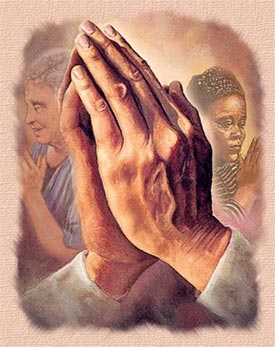 The couple went into the counsellor’s chambers and both of them were determined that they didn’t want to be in this marriage because they didn’t feel love for each other and there was growing animosity with each passing day. The wife said she didn’t sense his commitment to their marriage from the beginning and the husband argued for hours on how each time he was reminded that love is not just a feeling but it’s a commitment.
The couple went into the counsellor’s chambers and both of them were determined that they didn’t want to be in this marriage because they didn’t feel love for each other and there was growing animosity with each passing day. The wife said she didn’t sense his commitment to their marriage from the beginning and the husband argued for hours on how each time he was reminded that love is not just a feeling but it’s a commitment.
The counsellor, ripe with age and wisdom clarified, “I do not agree that feelings are unimportant, and there is only commitment. I do believe, however, that commitment should lead the day. Feelings are an important part of the relationship. But feelings come and go. However, commitment is the glue that holds the relationship together. “Love” is choosing to love someone, not just a feeling. I cannot create emotions, as you note. But I can choose to act lovingly when the emotions aren’t there.”
“Are feelings worthless? Absolutely not! But feelings and emotions are fickle. They come and go. The marriage vows are built on commitment through thick-and-thin. We don’t make a promise to ‘love as long as I feel that emotion.’ We promise to love through good and bad times, up and down times, healthy and sick days! We make those vows because we know the emotion will not always be there, so we promise to work through that.”
Marriage experts point out that one of the several possibilities that gets in the way of loving couples is unaddressed anger and resentment built-up over time.
Let’s look at how resentment builds up in a relationship. At the root of it, resentment stems mostly from childhood hurts or hurts from past lifetimes (as past life regressors put it). When you carry hurts from your childhood such as feeling unimportant, not valued, rejected, accused, guilty, powerless, inadequate or being unlovable–such hurts leave impressions in the unconscious mind that distort your view of current reality. When someone triggers one of your deep set hurt, recognizing the pain it might cause you, you immediately want to escape it and thereby take shelter in blaming the other or getting angry and abusive with the one whose action is hurting you. So, people blaming one another are just trying to relieve the pain of their deep set hurts.
Such deep-set hurts create alongside a deep need. A need which turns into expectation in a relationship i,e the person who is carrying a deep-set hurt expects the other person to treat him/her in a certain manner. When the other person fails to treat him/her in that manner, the deep need is unfulfilled and it leads to resentment. Resentment arises from unfulfilled needs. Note that if the expectation is not connected to a deep-set hurt, it will not lead to resentment.
In a husband-wife relationship, need for affection, appreciation, loyalty are some of the deep needs. When such deep needs are not met, there is scope for blaming, anger, and subsequently resentment. When there is resentment, there is blame. When we blame someone, some part of us feels relieved, isn’t it? Unfortunately, blame does not cure the pain, it only masks it for a while. If we are extremely conscious of our acts, we can know that by accepting our part responsibly and by developing a magnanimous heart to forgive the other person of his faults, can we truly experience relief from the pain that bothers the heart.
In his ‘Life of Total Forgiveness’ seminar, Mahatma Das, a monk & renunciant in the Gaudiya Vaishnava tradition says, resentment is not about what was done to you but about how you responded to what was done to you. He says anger, blame and resentment are emotions on the surface & mostly we are in touch with only these emotions. But if we dig a little more deeper, they have their root in more difficult feelings such as hurt, sadness and disappointment. He advices the participants that healing deep-set hurts is possible when we do a deep emotional excavation and release the emotional tension that we are holding onto by forgiving the person who hurt us. He says, resentment is about you being right and the other being wrong. As long as you need to be right, you won’t forgive. As long as you need to tell others how wrong your offender was, you won’t forgive. When it
comes to forgiving, being right is wrong!
Different ways help different people. When a spouse feels deeply understood and cared for, he or she is able to release some deep hurts. For some people intellectually understanding the direct negative implications on one’s own physical, emotional, mental and spiritual health helps. It is said that resentment is like drinking poison and hoping that the other person will die. If we are holding onto resentment and are not willing to let go of it, we carry it forward to many more lifetimes until one day we have give it up by forgiving the other person. Healers vouch that what we are dealing with in this lifetime, we did not handle it well in our past lifetime. Karmically too, when you hold resentment toward another, you are bound to that person or condition by an emotional link that is stronger than steel. Forgiveness is the only way to dissolve that link and get free. A.C.Bhaktivedanta Swami Prabhupada said, ‘Don’t be angry with the agent of your karma.’
Sincere forgiveness isn’t colored with expectations that the other person apologize or change. Don’t worry whether or not they finally understand you. Love them and release them. Life feeds back truth to people in its own way and time. They say to forgive is divine! It is the highest, most beautiful form of love. In return, you will receive untold peace and happiness.
‘As difficult as it seems, you can be sure of this: At the core of the heart, you have the power to move beyond the old issues that are still hindering your freedom. The hardest things–the ones that push you up against your limits–are the very things you need to address to make a quantum leap into a fresh inner and outer life.’ – Doc Childre and Howard Martin
Radhanath Swami in his discourse on forgiveness defines love as the capacity to endlessly forgive. He explains at length how our inability to make the choice to forgive, creates pain suffering and chaos, not only in the lives of others but ours too! Without forgiveness, no relationship can be satisfying. This is the real secret of successful relationships–the ability to forgive the other unconditionally! He says that this quality of forgiveness is more illuminating than the light of the sun and those who have that ability to forgive are invested with the power to access the mercy and the love of god.
– Mrs. Preethi Dhiman
…Read Articles in preethi’s Blog
 Arthur Ashe, the legendary Wimbledon player was dying of AIDS. From world over, he received letters from his fans, one of which conveyed: “Why does GOD have to select you for such a bad disease?”
Arthur Ashe, the legendary Wimbledon player was dying of AIDS. From world over, he received letters from his fans, one of which conveyed: “Why does GOD have to select you for such a bad disease?”




